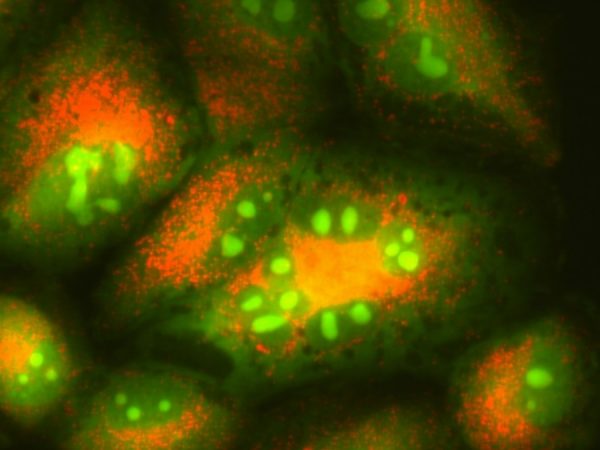FDA Expands Use of Antiangiogenic to Kidney Cancer
Last week, the U.S. Food and Drug Administration (FDA) announced that it had approved the use of the antiangiogenic therapeutic cabozantinib (Cabometyx) for treating certain patients with advanced renal cell carcinoma. Specifically, it is approved for those patients with renal cell carcinoma whose disease has progressed despite treatment with at least one other antiangiogenic therapeutic.

Cabozantinib impedes the growth of the blood vessel networks that tumors establish in order to grow and survive.
Antiangiogenics are a group of anticancer therapeutics that work by impeding the growth of the blood and lymphatic vessel networks that tumors establish in order to grow and survive. Each therapeutic targets a combination of the many molecules that promote the growth of new blood and lymphatic vessel networks within a tumor.
Currently, there are 11 antiangiogenic therapeutics approved by the FDA for treating a variety of cancer types, including renal cell carcinoma—the most common form of kidney cancer diagnosed in U.S. adults. In fact, the National Cancer Institute estimates that renal cell carcinoma will account for more than 90 percent of the anticipated 62,700 new cases of kidney and renal pelvis cancer expected to be diagnosed in the United States in 2016.
Several of the antiangiogenic therapeutics are standard treatments for advanced renal cell carcinoma. However, resistance to these agents frequently arises within a year, and disease progresses. At this point, patients are often treated with a second antiangiogenic therapeutic because each of these agents targets slightly different combinations of the molecules that enable tumors to thrive.
The FDA based its approval of cabozantinib for advanced renal cell carcinoma on results from the randomized, phase III METEOR clinical trial. Initial results from the trial, published in The New England Journal of Medicine in November 2015, showed that cabozantinib increased the time before disease progressed for patients with renal cell carcinoma who had previously been treated with one or more antiangiogenic therapeutic (e.g., sorafenib [Nexavar] or sunitinib [Sutent]) compared with everolimus (Afinitor), which is a recommended treatment in this situation. The FDA announcement stated that median overall survival was also improved among those assigned cabozantinib compared with those assigned everolimus. Specifically, median overall survival was 21.4 months for the cabozantinib arm compared with 16.5 months for the everolimus arm.
Cabozantinib is the second therapeutic the FDA has approved for treating patients with renal cell carcinoma whose disease has progressed despite treatment with at least one antiangiogenic therapeutic in the past five months. As I discussed previously on this blog, the immunotherapeutic nivolumab (Opdivo) was approved for the same patient population in November 2015. With the five-year relative survival rate for advanced kidney and renal pelvis cancer standing at just 11.8 percent, it is clear that new treatment options like these are urgently needed, and we hope to see more in the near future.



